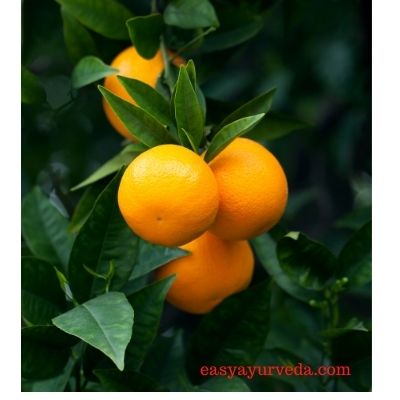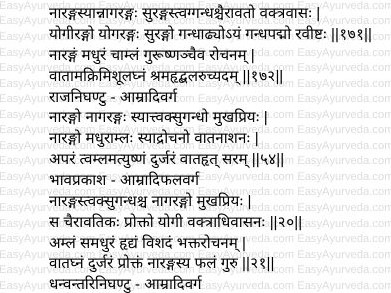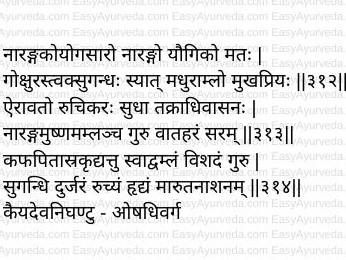Orange Fruit Uses, Remedies, Research, Side Effects
Orange fruit is one among the most widely consumed fruits around the globe. Orange fruit is loaded with a treasure of health benefiting qualities. While researchers of today are unearthing the health benefits of orange, ancient Ayurvedic text books have attributed this wonder fruit with many qualities.

Table of Contents
Benefits, qualities of orange
Traditional Ayurvedic view on benefits of orange –
Sanskrit word for orange is Naaranga. In fact the word orange has its root in the word Naaranga. (source – wikipedia)
Qualities of orange as per Ayurveda-
- Sour and sweet in taste.
- Vishadam – Clears the channels of the body, clarifies the blood vessels, cleanses the gastro intestinal tract.
- Increases taste of food
- Improves taste perception
- Hridya – Good for heart – acts as a cardiac tonic
- Imparts heat to the body. Hot in nature.
- Improves strength and boosts immunity.
- Balances Vata
- Relieves tiredness
- Helps in relieving indigestion, abdominal pain, worm infestation and colic pain.
Medicinal qualities of orange as per Ayurveda:
Rasa: Sweetish; sour and bitter in taste..
Guṇa: Palatable [hRRidyaM], light for digestion;
Vīrya: Cold in potency.
Karma: Increases the physical strength; increases the digestive agni; reduces the burning sensation of the body and body parts; improves the taste perception in anorexic patients; controls nausea and acid reflux post ingestion of food.
It is a good appetizer; digestive and soothing agent [shamanam].
Action on Doshās:
Appeases vAta when taken in raw state.
When taken after cooking it appeases the kapha and pittaM.
Sanskrit Verses


Modern views on orange benefits
Orange Vitamin C – rich source of vitamin C and beta-carotene which are powerful antioxidants. The heart protective claim of Ayurveda is thus justified.
Recent research on orange shows that orange contains bio-flavonoids (hesperedin) which helps to improve the absorption of vitamin C and also useful in the treatment of varicose veins and hemorrhoids.
Apart from Vitamin C, orange is a source of Vitamin A, Phosphorus, Calcium and Potassium.
Suggestions –
- Fresher the orange fruit, richer is the bio-flavonoid content.
- Organic / naturally grown is always better than genetically engineered. Do not get fooled by that pulpy shiny look. Shrunk, naturally looking small ones are usually trust worthy.
- Fruit is always better than fruit juice. You can avoid extra calories of sugar.
- Fruit salad will be a better idea for improving taste and to add variety.
Morphology
Citrus sinensis is a small evergreen tree growing up to 10 meters. Leaves are glossy green in color, ovate in shape, crenulate margins, 5 – 10 cm long and they are arranged alternately. Petioles are narrowly winged. Flowers are very fragrant, white in color with 5 petals and 20 – 25 yellow stamens. Fruits are globular to oval in shape, orange or yellow when ripes, surface is smooth and slightly pitted.
Distribution
Tropical and subtropical regions of South East Asia.
Vernacular names
Tamil name – aaranju palam, kamala aaranju, kicchili pazham.
Kannada name – doddile, haereli, Kittale.
Malayalam name – conakanaranna, jambiram, kolanchinarakam.
Urdu name – khattay, sharbat naramj.
Persian name – limeh, limu.
Arab name – limu, limu-e-hamiz, naranj.
Hindi name – amritphal, khatta, narangi,sangtara,sangtra,sunthura.
Telugu name – aaranji, batavanarinja,jambhiri.
Marathi name – laramj, narangi, sakulimba,suntra.
English: . orange
Sanskrit synonyms
Naranga, Nagaranga – fruit is orange in color
Vaktrasugandha, vaktravasa
Mukhapriya
Yogasara, Yogika, Yogaranga
Sugandha – fruit has good odour
Madhuramla – sweet, sour taste
Gandhadhya
Gandhapatra – leaves are fragrant
Suranga
Twak gandha
Botanical description
Kingdom – Plantae
Division – Magnoliophyta
Class – Magnoliopsida
Subclass – Rosidae
Order – Sapindales
Family – Rutaceae
Genus – Citrus
Botanical Name
Citrus sinensis (sweet orange)
Citrus aurantium (sour orange)
Citrus reticulata (Mandarin orange)
Family – Rutaceae
Interaction with medicines, supplements
Can this be used while taking Homeopathic medicine?
Yes. This product does not react with homeopathic medicine.
Can
this medicine be continued while taking supplements like multivitamin tablets,
Omega 3 fatty acids etc?
Yes. Generally, this product goes well with most
of the dietary supplements. However, if you are taking more than one product
per day, please consult your doctor for an opinion.
With western medicines
Seek your doctor’s advice if you are taking this product along with other western (allopathic / modern) medicines. Some Ayurvedic herbs can interact with modern medicine.
If both Ayurvedic and allopathic medicines are advised together, then it is best to take Allopathic medicine first, wait for 30 minutes and then take the Ayurvedic medicine.
Classical categorization
Raja nighantu – Aamraadai varga
Kaiyadeva nighantu – Aushadhi varga
Bhavaprakasha nighantu – Aamraadiphala vraga
Dhanvantari nighantu – Aamraadai varga

Market available variants
Oranges, raw, all commercial varieties
Rasa – sweet, sour, bitter
Guna – light, good for heart
Veerya – hot
Vipaka – sweet
Effect on Doshas
Vata balancing
Pitta nourishing (good appetizer, increases Agni)
Kapha nourishing
Oranges, raw, California, valencias
Rasa – sweet, sour, bitter
Guna – light, good for heart
Veerya – hot
Vipaka – sweet
Effect on Doshas
Vata balancing
Pitta nourishing (good appetizer, increases Agni)
Kapha nourishing
Oranges, raw, navels (Includes foods for USDA’s Food Distribution Program)
Rasa – sweet, sour, bitter (more sweeter than valencia oranges)
Guna – light, good for heart
Veerya – hot
Vipaka – sweet
Effect on Doshas
Vata balancing
Pitta nourishing (good appetizer, increases Agni)
Kapha nourishing
Oranges, raw, Florida
Rasa – sweet, sour, bitter
Guna – light, good for heart
Veerya – hot
Vipaka – sweet
Effect on Doshas
Vata balancing
Pitta nourishing (good appetizer, increases Agni)
Kapha nourishing (more kapha nourishing than California oranges as it is more juicy)
Oranges, raw, with peel
Rasa – sour, sweet, bitter
Guna – light, good for heart
Veerya – hot
Vipaka – sour
Effect on Doshas
Vata balancing
Pitta increasing (due to increased sourness and hot potency)
Kapha nourishing
Orange juice, raw (Includes foods for USDA’s Food Distribution Program)
Rasa – sweet, sour, bitter
Guna – light, good for heart
Veerya – hot
Vipaka – sweet
Effect on Doshas
Vata balancing
Pitta nourishing (good appetizer, increases Agni)
Kapha nourishing
Orange juice, canned, unsweetened
Rasa – sweet, sour, bitter
Guna – light, good for heart
Veerya – hot
Vipaka – sweet
Effect on Doshas
Vata balancing
Pitta nourishing (good appetizer, increases Agni)
Kapha nourishing
Orange juice, chilled, includes from concentrate
Rasa – sweet, sour, bitter
Guna – light, good for heart
Veerya – hot
Vipaka – sweet
Effect on Doshas
Vata balancing
Pitta nourishing (good appetizer, increases Agni)
Kapha nourishing
Orange juice, chilled, includes from concentrate, with added calcium and vitamin D
Rasa – sweet, sour, bitter
Guna – light, good for heart
Veerya – hot
Vipaka – sweet
Effect on Doshas
Vata balancing (more Vata balancing as calcium strengthens bones and balances Vata)
Pitta nourishing (good appetizer, increases Agni)
Kapha nourishing
Orange juice, chilled, includes from concentrate, with added calcium
Rasa – sweet, sour, bitter
Guna – light, good for heart
Veerya – hot
Vipaka – sweet
Effect on Doshas
Vata balancing (more Vata balancing as calcium strengthens bones and balances Vata)
Pitta nourishing (good appetizer, increases Agni)
Kapha nourishing
Orange juice, frozen concentrate, unsweetened, diluted with 3 volume water, with added calcium
Rasa – sweet, sour, bitter
Guna – light, good for heart
Veerya – hot
Vipaka – sweet
Effect on Doshas
Vata balancing
Pitta nourishing (good appetizer, increases Agni)
Kapha nourishing (less kapha nourishing as it is diluted with 3 volume water
Orange juice, frozen concentrate, unsweetened, undiluted, with added calcium
Rasa – sweet, sour, bitter
Guna – not very light (as it is concentrated), good for heart
Veerya – hot
Vipaka – sweet
Effect on Doshas
Vata balancing (more Vata balancing as calcium strengthens bones and balances Vata)
Pitta nourishing (good appetizer, increases Agni)
Kapha increasing (as it is concentrated)
Orange juice, chilled, includes from concentrate, with added calcium and vitamins A, D, E
Taste – sweet, sour, bitter
Properties – light, good for heart
Potency – hot
After digestion taste transformation (Vipaka) – sweet
Effect on Doshas
Vata balancing
Pitta neutral (orange juice is Pitta nourishing but calcium balances Pitta)
Kapha increasing (orange juice chilled, includes from concentrate is Kapha nourishing, but addition of vitamins make it more Kapha increasing)
Orange juice, frozen concentrate, unsweetened, undiluted
Rasa – sweet, sour, bitter
Guna – not very light (as it is concentrated), good for heart
Veerya – hot
Vipaka – sweet
Effect on Doshas
Vata balancing
Pitta nourishing (good appetizer, increases Agni)
Kapha increasing (as it is concentrated)
Orange juice, frozen concentrate, unsweetened, diluted with 3 volume water
Rasa – sweet, sour, bitter
Guna – light (as it is concentrated it is heavy, but dilution with water makes it light), good for heart
Veerya – hot
Vipaka – sweet
Effect on Doshas
Vata balancing
Pitta nourishing (good appetizer, increases Agni)
Kapha nourishing (as it is concentrated it is heavy, but this heaviness is reduced as it is diluted with water)
Orange peel, raw
Rasa – sour, bitter
Guna – heavy (rich in vitamins), piercing, sharp (contains polyphenols which help in managing type 2 diabetes, obesity)
Veerya – Hot
Vipaka – sour
Effect on Doshas
Vata balancing
Pitta increasing
Kapha balancing (useful in obesity)
Orange-grapefruit juice, canned or bottled, unsweetened
Rasa – sour, sweet
Guna – heavy (both orange and grapefruit are heavy)
Veerya – hot (orange is hot, grapefruit is slightly hot)
Vipaka – sour
Effect on Doshas
Vata balancing
Pitta nourishing
Kapha nourishing
Tangerines and its market available variants
Tangerines, (mandarin oranges), raw
Tangerines are sweeter and less sour when compared to oranges.
Rasa – sweet, slightly sour
Guna – light
Veerya – hot
Vipaka – sweet
Effect on Doshas
Vata balancing
Pitta increasing (due to hot potency)
Kapha nourishing
Tangerines, (mandarin oranges), canned, juice pack
Rasa – sweet, slightly sour
Guna – light
Veerya – hot
Vipaka – sweet
Effect on Doshas
Vata balancing
Pitta increasing (due to hot potency)
Kapha nourishing (in juice pack, water is added, so it becomes slightly diluted and less Kapha nourishing.
Tangerines, (mandarin oranges), canned, light syrup pack
Rasa – sweet, slightly sour
Guna – light
Veerya – hot
Vipaka – sweet
Effect on Doshas
Vata balancing
Pitta increasing (due to hot potency)
Kapha increasing (syrup is concentrated form, so it increases kapha)
Tangerine juice, raw
Rasa – sweet, slightly sour
Guna – light
Veerya – hot
Vipaka – sweet
Effect on Doshas
Vata balancing
Pitta increasing (due to hot potency)
Kapha nourishing
Clementines (Citrus × clementina)
Clementines, raw
A clementine or easy peeler is a tangor, a citrus fruit hybrid between a willowleaf mandarin orange and a sweet orange.
Taste – sweet, sour, bitter
Properties – light, good for heart
Potency – hot
After digestion taste transformation (Vipaka) – sweet
Effect on Doshas – Vata balancing
Pitta nourishing (good appetizer, increases Agni)
Kapha nourishing
Ayurvedic products with Orange as an Ingredient
Rejuvenating night cream
Patanjali saundarya coco body butter cream
Orange body wash
Rejuvenating night cream










2 comments
Dr J V Hebbar MD(Ayu)Author
Hi, such a reference of taking the juice by a straw is not found.
jeanne wallet
Namasté, i would like to find informations about orange flowers, orange blossoms… But i dont find. what are the ayurvedic benefits of orange blossom water. Thank you for your incredible work. Jee